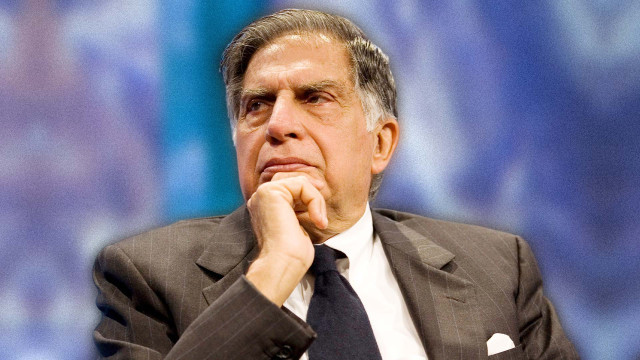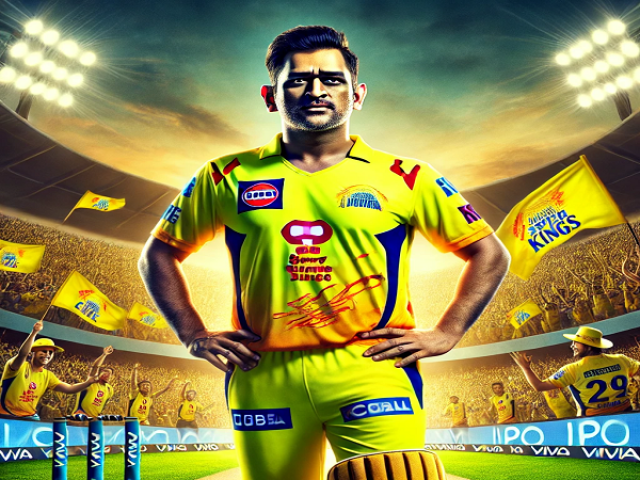Ratan Tata In Critical Condition At Mumbai Hospital
- Posted on 10-10-2024
- News
- By Saumy Verma
- 173 Views
Ratan Tata, the well-known industrialist and Chairman Emeritus of Tata Sons, is reportedly in critical condition at a hospital in Mumbai. This comes just two days after the 86-year-old reassured the public about his health, saying that his medical check-ups were routine and age-related.

According to a report by Reuters on Wednesday, citing two sources, Tata is currently in intensive care. On October 7, he addressed concerns on social media, dismissing the rumors about his health. He stated, "There is no need for worry. I’m undergoing check-ups for age-related issues, but I’m in good spirits."
Tata also asked the public and media to stop spreading false information, emphasizing, "The recent rumors about my health are not true."
He was admitted to Mumbai’s Breach Candy Hospital early Monday morning after his blood pressure dropped.
About Ratan Tata:
Tata became Chairman of Tata Sons in 1991 and retired in 2012. Under his leadership, the Tata Group's revenues grew significantly, from ₹10,000 crore in 1991 to over USD 100 billion by 2012. He also led important acquisitions, including Tetley (2000), Corus Steel (2007), and Jaguar Land Rover (2008). After his retirement, he briefly returned as interim chairman after the removal of his successor, Cyrus Mistry, before passing on the role to N Chandrasekaran in 2017.
Ratan Tata is one of India's most respected industrialists and philanthropists, known for transforming the Tata Group into a global business powerhouse during his tenure. Here's more about him:
Early Life and Education:
- Born: December 28, 1937, in Mumbai, India.
- Education: He studied at Campion School and Cathedral & John Connon School in Mumbai, then went to Bishop Cotton School in Shimla and Riverdale Country School in New York.
- He earned a degree in architecture from Cornell University in 1962 and later completed the Advanced Management Program at Harvard Business School in 1975.
Career at Tata Group:
- Ratan Tata joined the Tata Group in 1961, working on the shop floor of Tata Steel, learning the intricacies of the business from the ground up.
- Chairman of Tata Sons (1991 - 2012):
He took over as Chairman of Tata Sons, the holding company of the Tata Group, in 1991. Under his leadership, the group grew significantly, expanding into new industries and global markets.- He led some of the Tata Group’s most notable acquisitions, including:
- Tetley (2000): Tata Tea’s acquisition of British tea brand Tetley for $450 million.
- Corus Group (2007): Tata Steel’s purchase of the Anglo-Dutch steelmaker for $12 billion.
- Jaguar Land Rover (2008): Tata Motors’ acquisition of the British luxury car brands for $2.3 billion.
- Under his leadership, over half of Tata Group’s revenue started coming from international markets, marking its global presence.
- He also spearheaded the creation of the Tata Nano, the world’s most affordable car at the time, which was aimed at making car ownership accessible to the Indian middle class.
- He led some of the Tata Group’s most notable acquisitions, including:
Philanthropy:
Ratan Tata is known for his deep commitment to philanthropy, channeling much of his fortune into charitable causes through the Tata Trusts, which control around 66% of Tata Sons’ equity.
- His charitable work spans education, rural development, healthcare, and technology.
- He has made significant donations to universities and institutions, including Cornell University, Harvard Business School, and the Indian Institute of Technology (IIT).
- Tata has been involved in disaster relief efforts, contributing to rehabilitation during natural calamities like the 2004 Indian Ocean tsunami and COVID-19 pandemic.
Awards and Honors:
Ratan Tata has received numerous awards, including:
- Padma Bhushan (2000) and Padma Vibhushan (2008), India's third and second-highest civilian awards.
- Honorary Knight Grand Cross of the Order of the British Empire (GBE) in 2009 for his contributions to Indo-British relations.
- Honorary citizenship of Singapore in 2007.
Leadership Style and Vision:
Ratan Tata is admired for his vision, ethical leadership, and his ability to guide the Tata Group while staying true to its core values. He maintained a people-first approach, emphasizing social responsibility and long-term sustainability over short-term gains.
Post-Retirement:
After stepping down as Chairman of Tata Sons in December 2012, Tata continued to play a role in the company as Chairman Emeritus. He briefly returned as interim chairman in 2016 after the removal of his successor, Cyrus Mistry. Tata then handed over leadership to N Chandrasekaran in 2017.
Even in retirement, Ratan Tata remains active in business, investing in startups and mentoring young entrepreneurs. His investments span diverse sectors, including e-commerce, electric vehicles, and healthcare.
Personal Life:
Ratan Tata has always maintained a private and simple lifestyle, despite his immense success. He is passionate about architecture and aviation and is a trained pilot. He is also a strong advocate for animal welfare.
Ratan Tata’s legacy extends far beyond business; he is widely regarded as a symbol of integrity, humility, and vision in both the corporate and social worlds.




